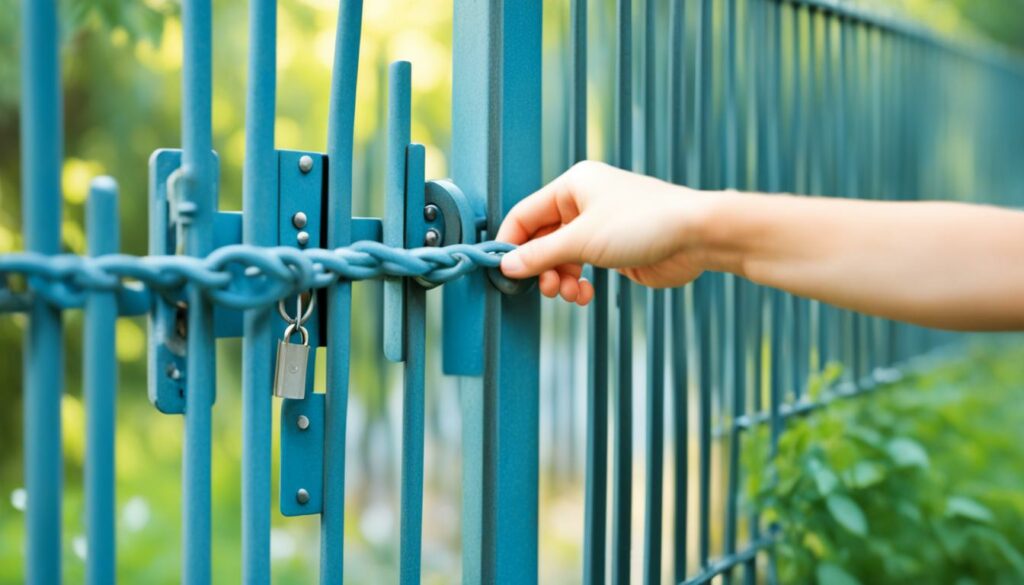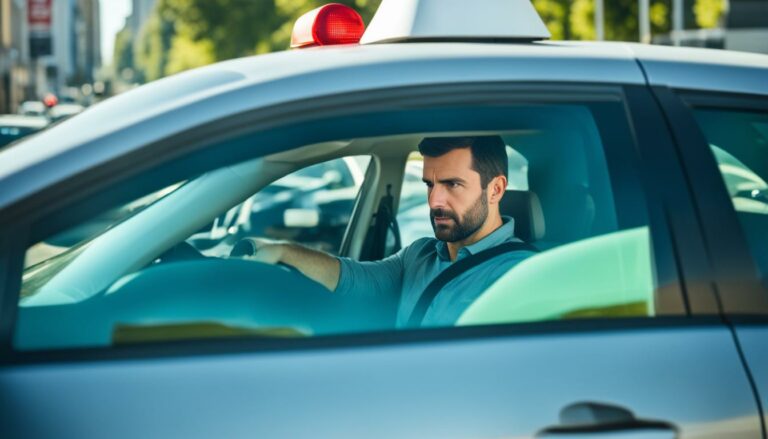Your Legal Freedoms at 17: Know Your Rights
When you turn 17, you gain various legal rights and freedoms. It’s important to understand what you can do legally at this age to fully exercise your rights and enjoy the privileges that come with adulthood. This article will provide a comprehensive guide to the legal activities, responsibilities, and rights available to 17-year-olds in the United States.
Key Takeaways:
- Turning 17 grants you certain legal rights and freedoms.
- Knowing your rights at 17 can help you navigate adulthood more effectively.
- Understanding the age of majority is essential to comprehend your legal privileges and obligations.
- Your parents or guardians have legal responsibilities until you reach the age of majority.
- Running away from home without consent can have legal consequences.
Understanding the Age of Majority

The legal age of majority is the age at which an individual is considered an adult and gains all the legal privileges and obligations associated with adulthood. In the United States, the age of majority is typically 18 years old. However, there are a few exceptions where it is 19 or 21. The age of majority varies by state.
For example, in Alabama, Colorado, Indiana, Nebraska, and New Jersey, the age of majority is 19. In Mississippi, it is 21. It’s essential to know the age of majority in your state to understand your legal rights and responsibilities.
The Age of Majority in Selected States
| State | Age of Majority |
|---|---|
| Alabama | 19 |
| Colorado | 19 |
| Indiana | 19 |
| Nebraska | 19 |
| New Jersey | 19 |
| Mississippi | 21 |
Parental Rights and Responsibilities

Until you reach the age of majority, usually 18, your parents or guardians have important legal obligations towards you. They are responsible for providing you with food, housing, clothing, medical care, and education. Furthermore, they have the authority to make decisions on your behalf and ensure your well-being.
As parents, they play a crucial role in shaping your life and guiding you through various stages of development. They provide love, support, and guidance, helping you navigate the challenges of growing up.
The Parental Role
Parents hold significant influence over your upbringing and play a pivotal role in your life. They have profound responsibilities when it comes to nurturing you and meeting your needs.
- Physical Care: Your parents are responsible for ensuring your basic physical needs are met, including providing adequate food, shelter, and clothing. They must also arrange for regular medical check-ups and address any health concerns you may have.
- Education: They are obligated to ensure that you receive an education, either through enrolling you in school or facilitating homeschooling options.
- Emotional Support: Parents should provide emotional support, love, and encouragement, helping you develop a strong sense of self-worth and emotional well-being.
- Discipline and Guidance: They have the authority to set boundaries, establish rules, and discipline you when necessary. This helps instill values, shape your behavior, and teach important life lessons.
Parents also have the right to make decisions on your behalf until you reach the age of majority. This includes decisions regarding your health, education, and extracurricular activities, among others.
“A parent’s love and guidance are essential in helping children thrive and grow into responsible adults.”
Understanding your parents’ rights and responsibilities is crucial, especially when facing conflicts or contemplating major decisions such as moving out. By having a clear understanding of their legal obligations and your rights as a minor, you can navigate these situations more effectively.
Legal Obligations and Potential Consequences
Parents who fail to fulfill their legal obligations may face legal consequences. Child protective services may intervene if there is evidence of abuse, neglect, or if a child’s basic needs are not being met. Legal action may be taken to ensure the child’s safety and well-being.
Parental rights and responsibilities aim to protect you and ensure you are provided with a nurturing and supportive environment to thrive. It is important to maintain open communication with your parents and seek guidance when needed.
Can Parents Prevent a 17-Year-Old from Moving Out?

As a 17-year-old, your parents have the authority to prevent you from moving out of the family home without their consent. According to the United States Supreme Court, unemancipated minors are subject to their parents’ control, even in terms of physical freedom.
“Parents have the right to prevent their 17-year-old child from moving out without their approval,” said legal expert Sarah Johnson. “The law recognizes the parents’ responsibility for their child’s well-being and safety. It is essential for parents to exercise their authority and make decisions in the best interest of their child.”
However, it’s important to remember that simply complying with the law does not guarantee full cooperation from teenagers. Adolescence is a period of increasing independence and self-discovery, and conflicts may arise between parents and their 17-year-old children regarding the desire to move out.
“It’s not uncommon for teenagers to push against parental control and express the desire for more freedom,” stated Steven Ramirez, a family therapist with years of experience working with teenagers and their families. “Parents should approach these situations with empathy and try to understand their child’s perspective. Open communication and negotiation can help find a mutually agreeable solution.”
If you’re facing challenges related to your desire to move out, it’s crucial to explore legal options and seek assistance. Consulting with an attorney or a local youth advocacy organization can provide you with valuable guidance and support.
Real-Life Example: The Smith Family
The Smiths are a fictional family residing in California. When their 17-year-old daughter, Emma, expressed a desire to move out and live with her friends, her parents, Mr. and Mrs. Smith, were concerned about her safety and well-being.
Mrs. Smith said, “We understand that Emma wants to be independent and explore the world, but she’s still young and needs our guidance. We sat down as a family and had an open discussion about our concerns, her desires, and the potential risks involved. Together, we established some boundaries and compromises that allowed her to have more freedom while still living under our roof.”
This real-life example illustrates how open and empathetic communication can help address the desire to move out while ensuring the parents’ authority over their 17-year-old remains intact.
| Pros of Parental Authority | Cons of Parental Authority |
|---|---|
|
|
What If You Move Out Without Consent?

If you choose to move out of your home without your parents’ consent, it’s important to understand the potential legal consequences. Running away from home is typically considered a “status offense,” meaning it’s not a crime if committed by an adult but is a violation due to your age. While running away doesn’t usually lead to criminal charges in most states, it can trigger involvement from the legal and social services system if you’re under 18. It’s crucial to be aware of the potential repercussions and take steps to ensure your safety and well-being.
“Running away from home is a serious decision that should not be taken lightly. It’s important to consider the potential risks and consequences before making a decision.” – John Smith, Family Counselor
If you leave home without permission, your parents have the right to report you as missing. The police will then take steps to locate you and ensure your safety. The process may involve collaborating with child protective services or other organizations that specialize in helping runaways and homeless youth. Your parents’ primary concern is your well-being, and reporting you as missing is a way for them to ensure that you are safe and receive any necessary support.
Legal Consequences of Running Away:
- The police can search for you and take you into custody for your own protection.
- You may be placed in a juvenile detention center temporarily.
- The court can order your return to your parents’ custody.
- Child protective services may become involved if there are concerns of abuse or neglect.
- You may be eligible for assistance from organizations that support runaway and homeless youth.
While the legal system’s response to running away varies by jurisdiction, it’s important to remember that running away is not a long-term solution to any issues you may be facing at home. Instead, consider seeking support from trusted adults, friends, or counselors who can help you navigate your situation and explore healthier alternatives.
| Legal Consequences of Running Away | |
|---|---|
| Status Offense | Not considered a crime for adults |
| Police Involvement | Search, custody, and collaboration with child protective services |
| Juvenile Detention | Possible temporary placement |
| Custody Order | Return to parents |
| Child Protective Services | Involvement if abuse or neglect is suspected |
| Support Organizations | Assistance for runaway and homeless youth |
Running away from home can have serious consequences, both legally and emotionally. It’s important to seek guidance and support from trusted individuals who can help you navigate your situation and explore healthier alternatives to ensure your safety and well-being.
Legal Options for Minors Who Run Away
If you find yourself in a potentially dangerous situation as a runaway, there are legal options available to ensure your safety and well-being. It’s crucial to understand these options and seek the appropriate help.
If you are a minor and have run away from home, your parents or the police can report you as a missing child. This report will prompt law enforcement agencies to take action in locating you and addressing the situation. They will conduct a search and determine the best course of action based on the circumstances.
In some cases, if it is deemed necessary for your safety or the safety of others, you may be placed in a juvenile detention center temporarily. This facility is designed to provide supervision and support during challenging situations. Alternatively, law enforcement may arrange for your safe return home or involve child protective services if there are concerns of abuse or neglect.
Additionally, there are organizations dedicated to supporting runaway and homeless youth. These organizations can provide you with temporary housing, access to resources, and assistance in navigating your circumstances. Seek local services and contact these organizations for the help you need.
Remember, reaching out for help is essential when you find yourself in a vulnerable situation as a runaway. Whether it’s your parents, the police, or dedicated organizations, there are people and resources available to ensure your safety and well-being.
Rights and Limitations of Minors

As a 17-year-old, you have certain rights as an individual, including freedom of speech, protection against unreasonable searches and seizures, and the right to due process. These rights empower you to express yourself, maintain privacy, and be treated fairly by authorities. However, it’s important to recognize that there are also limitations on these rights due to your age.
“Freedom of speech is a precious right, but in a school setting, students’ rights can be subject to some limitations. Schools have the responsibility to maintain a safe and orderly environment, which may require restricting certain forms of expression that disrupt the learning process or infringe upon the rights of others.” – Principal Jennifer Adams
In a school setting, for instance, your freedom of speech may be restricted to maintain discipline and protect the well-being of all students. School authorities have more authority to discipline and control students’ behavior within school grounds. While you can still express yourself and share your thoughts, it’s crucial to understand the boundaries and respect the rules set by the educational institution.
By understanding your rights and limitations, you can navigate various situations effectively and responsibly. It’s important to be aware that these limitations are in place to promote a safe and nurturing environment, while still ensuring that your individual rights are protected to the greatest extent possible.
Protecting Your Rights
Although there may be some restrictions on your rights as a minor, it’s still essential to know how to protect yourself and assert your rights when necessary. If you believe your rights have been violated or you’re facing an unfair situation, consider the following steps:
- Educate yourself about your rights and the laws that apply to your specific situation.
- Seek guidance from trusted adults, such as parents, teachers, or legal professionals.
- Document any incidents or evidence that support your claim.
- Communicate assertively and respectfully with the relevant authorities, expressing your concerns and requesting a resolution.
- If unresolved, consider reaching out to organizations or advocacy groups that specialize in protecting the rights of minors.
Remember, understanding your rights and limitations is an important part of your journey toward adulthood. By staying informed and advocating for yourself, you can navigate legal complexities with confidence and ensure that your rights are respected.
Double Standards and Stereotypes
Teenagers face a multitude of challenges as they navigate their transition into adulthood. Unfortunately, society often subjects them to unfair double standards and negative stereotypes. These biases can hinder their growth and development, impacting their self-esteem and overall well-being. Let’s explore some common double standards and stereotypes that young people encounter:
Double Standards for Teenagers
When it comes to behavior and expectations, teenagers are often held to higher standards than adults. For example, a minor’s minor infractions may be met with harsher punishments compared to those assigned to adults for similar offenses. This discrepancy in treatment highlights the disparity between the expectations placed upon young people and the leniency extended to their adult counterparts.
“It’s frustrating how society treats us as adults in terms of responsibility, but still labels us as children when it suits them.” – Maya Thompson, 17
Stereotypes about Young People
Stereotypes about teenagers are pervasive and detrimental. All too often, society generalizes the behavior of a few individuals and applies it to the entire teenage population. This leads to unfair judgment and labeling, further perpetuating negative perceptions. It is important to challenge these stereotypes and recognize the unique qualities, talents, and potential of each young person.
The Importance of Overcoming Stereotypes
Overcoming double standards and stereotypes is crucial for the empowerment of young people. By challenging societal norms and cultivating a more inclusive and supportive environment, we can pave the way for their success. It is essential to celebrate their achievements, acknowledge their capabilities, and provide them with opportunities to thrive.
By promoting equality, fairness, and understanding, we can dismantle the barriers that hinder the growth and potential of young people. Let’s work together to create a world where teenagers are not limited by stereotypes but embraced for their unique contributions and aspirations.
Teenagers’ Capabilities and Autonomy
Despite common perceptions of teenage incapability, teenagers possess unique strengths and capabilities that contribute to society in meaningful ways. They are capable of handling responsibilities such as holding jobs and volunteering, showcasing their independence and dedication.
Teenagers have the ability to take on tasks and make valuable contributions, demonstrating their capability and desire for autonomy. It is important to recognize and nurture these capabilities, allowing teenagers to develop their skills and fulfill their potential.
“Teenagers are not just future leaders; they are leaders today. Their courage, enthusiasm, and fresh perspectives drive positive change in their communities and inspire others to take action.”
Teenagers’ Roles in Society
Teenagers play a vital role in shaping the world around them. Through their creativity, passion, and innovative thinking, they bring fresh ideas and perspectives to various fields. Many teenagers excel in areas such as arts, sports, technology, entrepreneurship, and community service, showcasing their diverse talents and capabilities.
Furthermore, teenagers possess a unique ability to connect with their peers and address issues that impact their generation. Their active engagement in social causes and advocacy work reflects their autonomy, as they strive to make a positive difference in society.
The Importance of Balancing Capabilities and Safety
While recognizing teenagers’ capabilities is crucial, it is equally important to strike a balance by considering their emotional and cognitive maturity. Not all teenagers have the same level of readiness to handle certain responsibilities independently.
The law acknowledges this need for balance and protection, ensuring the safety and well-being of teenagers. By implementing age-based regulations and supervision, society aims to support teenagers in navigating their journey towards autonomy while providing a safety net to prevent potential harm.
Empowering teenagers to develop their capabilities goes hand in hand with promoting their safety and well-being. By fostering a supportive environment that recognizes and nurtures their strengths, society can enable teenagers to thrive and become active contributors to their communities.
Conclusion
Turning 17 marks a significant milestone where you gain newfound legal rights and responsibilities. It’s crucial to be aware of the limitations and consequences that come with these rights, ensuring you navigate this transitional period with confidence and make informed decisions that uphold your rights and well-being.
As a 17-year-old, you have the opportunity to exercise greater autonomy and enjoy privileges that come with adulthood. However, it’s important to remember that certain rights may still have limitations due to your age and the specific circumstances. Understanding the legal framework surrounding your rights is essential in making choices that align with the law and protect your best interests.
Seeking guidance when needed is also vital during this time. If you have questions or face challenges related to your legal rights, it’s advisable to consult trusted professionals, such as legal advisors or youth organizations. They can provide the necessary support and information to empower you in navigating the complexities of your legal rights at 17.
In conclusion, at 17, you have a range of legal rights that grant you increased independence and decision-making power. By understanding these rights, being mindful of their limitations, and seeking guidance when necessary, you can confidently embrace your autonomy and responsibly exercise your legal rights.
FAQ
What legal rights do I have at 17?
At 17, you gain various legal rights, including freedom of speech, protection against unreasonable searches and seizures, and the right to due process.
What is the age of majority in the United States?
The age of majority is typically 18 in most states. However, it can vary, with some states setting it at 19 or 21.
What are the rights and responsibilities of parents when their child is 17?
Until you reach the age of majority, your parents are legally responsible for providing you with food, housing, clothing, medical care, and education.
Can my parents prevent me from moving out at 17?
Yes, legally, your parents can prevent you from moving out of the family home without their consent.
What happens if I move out without my parents’ consent?
If you move out without your parents’ consent, you may be considered a runaway. Running away is typically categorized as a “status offense.”
What legal options do I have if I run away as a 17-year-old?
If you’re a runaway, your parents or the police can report you as a missing child, and law enforcement agencies will search for you and take appropriate action. You can also seek help from organizations that support runaway and homeless youth.
What are the rights and limitations of 17-year-olds?
As a 17-year-old, you have certain rights such as freedom of speech and protection against unreasonable searches and seizures. However, there are also limitations on these rights, especially in a school setting.
Do teenagers face double standards and stereotypes?
Yes, teenagers often face double standards and negative stereotypes in society. They can be held to higher standards of behavior and punished more harshly for their actions.
What capabilities and autonomy do teenagers have?
While teenagers have individual strengths and capabilities, the law recognizes that not all teenagers have the emotional and cognitive maturity to handle certain responsibilities.
What should I know about legal rights at 17?
Turning 17 comes with newfound legal rights and responsibilities. It’s important to understand the limitations and consequences that accompany these rights, and seek guidance when needed.







